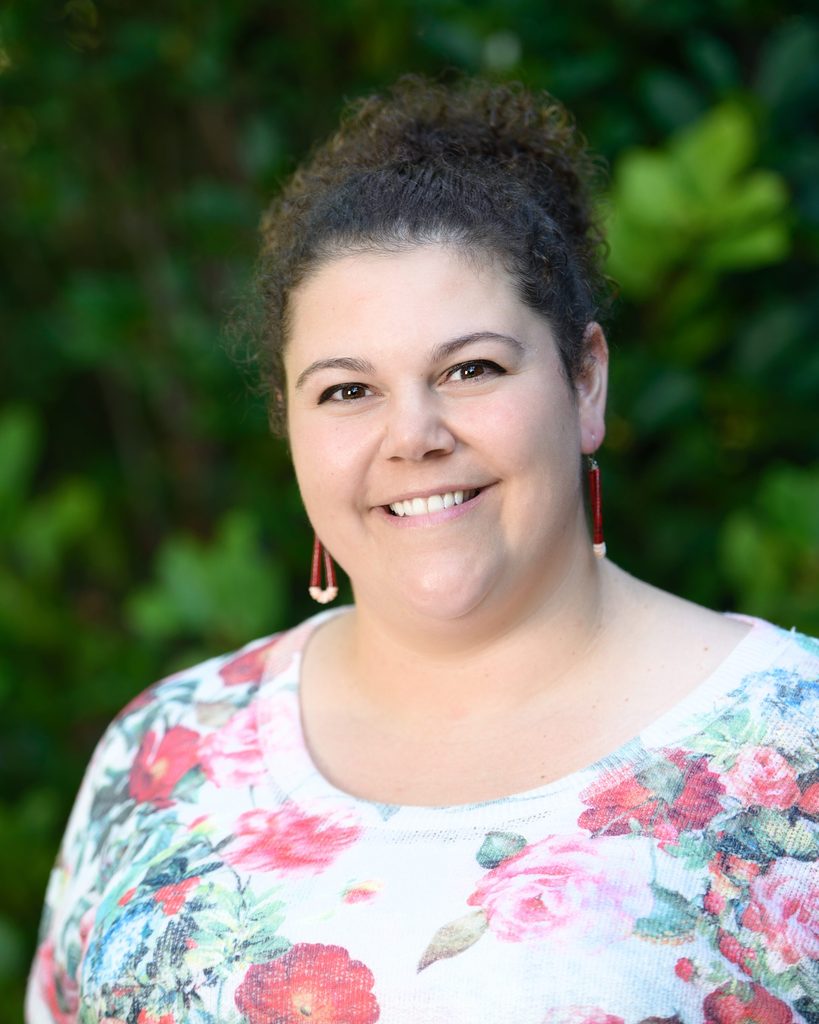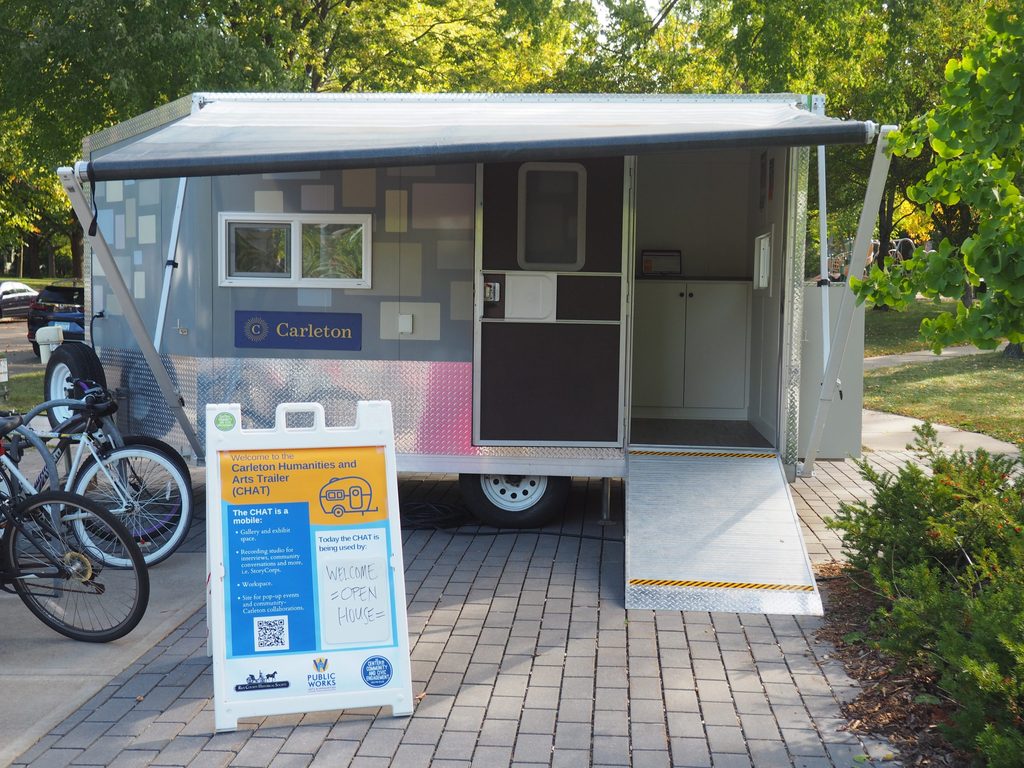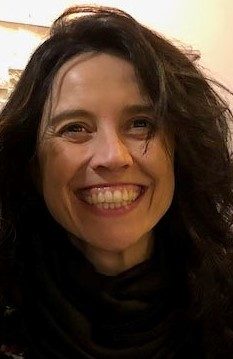CCCE Updates
Fall Term ACE Gathering – October 19, 4-6pm
Please join us for the fall gathering of faculty and staff involved in Academic Civic Engagement. These gatherings are intended to provide an opportunity for faculty who teach courses using an academic civic engagement approach to share experiences and learn from each other, and to build a deeper sense of community. Drop in anytime from 4-6 pm in the Alumni Guest House for beverages, snacks, and community. Please RSVP by October 14 if you can join us.
CCCE staff presenting at Imagining America Conference October 14-16
CCCE staff members Emily Seru, Sinda Nichols, and Danielle Trajano, along with Broom Fellow and Spanish professor Palmar Alvarez-Blanco and community collaborator Susan Gust, will be in New Orleans October 14-16 presenting at the Imagining America Conference. They will share results from Shaping Our Shared Future Together and facilitate a “River of Life” activity to give attendees a concrete tool for and opportunity to practice building collective knowledge.
Welcome Marcy!

We are happy to welcome Marcy Averill, Carleton College’s inaugural Indigenous Communities Liaison. Marcy is based out of the CCCE, and her work includes building better relations with Native nations and improving how Carleton engages Native people and Native-related issues on campus. Her position has been made possible in part by a grant from the National Endowment for the Humanities in partnership with the Social Science Research Council.
Marcy comes to us from the Office of Education Diversity, Equity and Inclusion in Mayo Clinic College of Medicine and Science, where she worked with medical students, researchers, and administration on Native issues. While at Mayo, she led steps toward reconciliation between Mayo and Dakota nations, developed a Native American Pathways Program for undergraduate and high school students interested in health careers, and directed a large federal grant on American Indian/Alaska Native cancer research with nationally-renowned research faculty. Marcy is an electrical engineer by training and draws on a robust STEM network, including from her long-standing work with the American Indian Science and Engineering Society (AISES) and from her tenure at IBM where she led a project expanding high-speed internet services and access on reservations. Marcy is of Turtle Mountain Band of Chippewa descent, and she was raised in St. John, North Dakota, on the Turtle Mountain reservation. You can reach Marcy at maverill@carleton.edu
The Carleton Humanities and Arts Trailer (CHAT) – a new resource for ACE courses and public scholarship

The CCCE is excited to introduce the new Carleton Humanities and Arts Trailer (CHAT)! The CHAT is a mobile multi-purpose space available for use by ACE courses and Carleton faculty public scholarship. The CHAT can be used as a mobile gallery/exhibit space; as a mobile recording studio for “StoryCorps” type interviews, podcasts, or community conversations; as a site for community outreach or pop up events; or as a workspace for collaborative work with off-campus partners.
The CHAT will be on campus twice this fall for ACE courses: as part of Community Archaeology Day (held by Sarah Kennedy’s ARCN 246 class) on November 15, and for an oral history project collecting students’ stories of their experiences with reproductive justice led by GWSS 250 students and members of Carleton Students for Reproductive Freedom (October 22-29).
If you’re interested in using the CHAT for a class or public scholarship work, contact Kelsey at kbarale@carleton.edu. More information and a reservation form are available online.
Featured Academic Civic Engagement (ACE) Collaboration: Palmar Álvarez-Blanco’s “Spain Today”
Below is an excerpt from an interview with Palmar Álvarez-Blanco about her Broom Fellowship and the ACE components of her course “Spain Today”. To read the full interview, which includes Palmar’s plans for her Broom Fellowship and more information on how her interest in public scholarship developed, please see the CCCE news page.
Can you describe your ACE course this term? What are you hoping students will learn from the ACE component of the course?

My current academic civic engagement and digital humanities project is titled “Shared Memories: Learning History through Meaningful Conversations with Senior Citizens in Spain.” This is a new learning component that helps me to expand the fall 2022 course “Spain Today” by establishing a collaboration with UNATE, a senior citizens’ university in Santander, Spain.
By preparing for and participating in these one-on-one conversations with people who lived under the dictatorship and transitional period to democracy in Spain, the students have an opportunity to enhance their understanding of the complexities of studying the history of a country that is still dealing with historical taboos and trauma.
Although reading and studying a country’s history can help the students be well-informed, listening firsthand to the protagonists’ stories provides the younger generation with a different perspective. Through this exchange of conversations, students gain a deeper understanding of what life was like during the dictatorship in Spain and throughout the ensuing democratic period. As for the co-educators from UNATE, this experience allows them to reevaluate the past from a critical perspective and recognize the importance of their role as co-educators.
These encounters are designed to foster an intergenerational and intercultural conversation which allows the participants on both sides of the Atlantic to share their knowledge about living through a transitional time in history. In addition, these interviews enable us to study the correlation between academic knowledge about history and personal stories of lived histories. This exchange of conversations contributes to the students’ global perspective, which in turn can produce the cultural competency necessary to function in a diverse world. It is rewarding to see how the space of the classroom, in the midst of our modern individualistic society, is already becoming a communal experience.
Why do you feel civic engagement is important for higher education institutions, scholars, and students?
I believe the main goal of public scholarship and civically-engaged teaching is to transform the somewhat-siloed academic culture at many colleges and universities through a collaborative practice that will connect different spaces, sectors, peoples, and communities. The crisis we are living in not only requires urgent action within the legal, juridical, economic, cultural and political spheres, it also requires a joint effort to abandon the territory of the ‘ego-systems’ so that we can all enter the ecosystem of the commons. If our ethical, creative, and political health are of primary concern, it is of vital importance to create stories that can be used to do away with what is supposed to be understood as common sense under capitalism.
ACE Resources and Funding Opportunities
Funding:
Request funding through the CCCE to support your ACE course (honoraria, events, or transportation) or for an ACE TA. Rolling deadline (priority deadline for winter term: Nov 1, 2022). We have started offering an informal TA training for ACE TAs.
Curricular innovation, Ethical Inquiry in the Classroom, and Ethical Inquiry Outside the Classroom grants to support redesign of and innovation around ACE courses. Deadline: February 6, 2023.
Broom Public Scholarship Grants. Rolling Deadline.
Puzak Endowed Fund for Experiential Learning and Community Engagement. Rolling deadline.
Non-monetary resources:
The ACE fellows write discussion and reflection questions for most Convocations. Faculty members are invited to use these questions in class or direct students to them, as they relate to your courses.
Shaping Our Shared Future Together is a powerful resource for community-institutional partnership development.
Events and Learning Opportunities
Civic Action Academy
The 2022 Civic Action Academy will be held on November 11-12 in Des Moines, IA at Grand View University. This event is aimed largely at students, but college and university staff, faculty, or administrators who are interested in presenting at the Civic Action Academy are also invited to attend. Some sessions will be led by students and some by campus staff. Faculty and staff who are planning to bring a group of students down AND are interested in presenting to students can fill out this interest form.
Campus Compact Fall Faculty Development Workshop: Engaging Community Partners at Co-Educator, Comrades, and Co-Conspirators
“It is a commonly accepted statement in the community engagement field that community partners function as co-educators of students. However, this construct of co-educator is much harder to put into practice when one is actually creating and implementing a course. Hear from pairs of faculty and community partners about how their co-educator partnerships work “in practice,” and get their candid insights about the opportunities and challenges inherent in this kind of relationship. Participants will also explore how partnerships can situate faculty and community partners as comrades and co-conspirators in transforming higher education and community spaces to be more just and equitable.”
Online, November 9, 2022. 1-2:30pm Central
2023 Gulf South Summit
The 2023 theme is “Serving Our Surroundings: Creating and Sustaining Authentic Community Engagement.” Proposals are due October 24, 2022, and the Summit will take place April 12-14, 2023 in Athens, GA.
Calls for Publications
Journal of Participatory Research Methods. Rolling deadline.
Michigan Journal of Community Service Learning – Ongoing Call for Submissions
Bringing Theory to Practice Blog
BT2P’s new blog is intended to be a space for reflection, visioning, argument, critique, praise, and provocation. Send your ideas or drafts (500-1,000 words) to communication@bttop.org.
Request for Proposals: Teaching and Learning Symposium on Social Justice in Higher Education 2023
Dates: February 27, 2023- March 3, 2023
The Center for Teaching, Learning, and Innovation (CTLI) at Hudson County Community College is accepting session proposals for next year’s Teaching and Learning Symposium on Social Justice in Higher Education 2023 until January 18, 2023. To learn more about submitting a proposal, please see the flier.